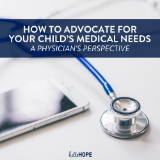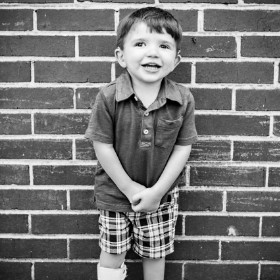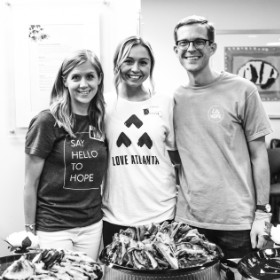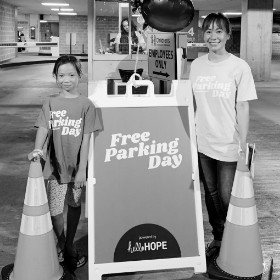Leukemia: Miles’ Story of Facing Treatment with Courage and Hope
In 2016, Miles Glee was nine years old, and his family was in the middle of new and exciting transitions. They had recently moved, and his mother, Nikki, had just taken her dream job at Delta. Miles and his siblings were happy in their new neighborhood, and life was humming along. At a neighborhood event that December, Nikki and her husband, Craig, asked one of their neighbors, a doctor, about some swelling they had noticed in Miles' neck. Their pediatrician told them to watch it for a few days, but had seemed unconcerned. "It's probably a virus, but go have it checked," their neighbor advised. "Take him to CHOA."
Not wanting to miss church the following morning, Craig took Miles to Children’s Healthcare of Atlanta (CHOA), that Saturday night while Nikki waited at home with Miles' brother and sister. When Miles was shown to a room, Craig took note that they had been sent to the cancer and blood disorder unit of the hospital and quickly realized the situation was far more serious than they could have predicted.
The following morning, Craig and Miles were still waiting for information. A friend came to the Glee's home to watch Miles' brother and sister so that Nikki could bring breakfast to her son and husband at the hospital. During the drive, Craig called Nikki. "The doctor wants to talk to us," he said.
"At this point, I just wanted to know. I said, ‘Tell me now, I'm okay,’" Nikki remembers. "The doctor said, 'We think Miles has lymphoma.' … I remember exactly where I was — that moment is so clear — and I kept thinking, I wish I could go back a few minutes, and just rewind. Can I just stop there and not do anything else?"
The doctor went on to say that they were still ruling out other options, including mono. "That was like a Jedi mind trick for me," Nikki laughs. "In my mind I thought, well, okay, it's mono." But by that evening, the doctors had a firm diagnosis: Miles had leukemia.
Craig remembers receiving the news at home, having gone back to the house to relieve their friend who was babysitting. "It hit me like a freight truck," he says. "I started thinking: what are we going to do to get through this? And what do I need to do? Miles is a twin, so I wondered if I needed to worry about his sister, too. And did I need to worry about my other son as well? I just craved information."
Coping with the Leukemia Diagnosis and Treatment
Less than 48 hours after his diagnosis, Miles and his family were thrown into a whirlwind of treatment, beginning with a bone marrow draw and spinal tap. The doctors presented Nikki and Craig with a plan for the next three years, detailing each step they would need to take to care for their son. In less than two days, the course of their family's life had permanently changed.
Miles entered an extremely rigorous course of treatment that included 24-hour chemotherapy sessions followed immediately by 48 hours of flushing out his system so that the harsh medicine would not cause damage to Miles' growing body. His initial stay in the hospital stretched to thirty days, and afterward he returned at regular intervals for at least three days at a time to continue chemo and to complete a battery of tests.
During this time, caring for Miles became an almost military operation: there were medicines to be administered at exact times, very serious dietary restrictions, and the ever present danger of Miles catching seasonal illnesses while his immune system was suppressed from chemotherapy. Nikki and Craig kept extensive notes on every medication and possible side effect.
"You want to figure things out," Craig says, remembering how his analytical mind was constantly occupied with statistics and risks. "But there were too many unknowns. The fear was real. Palpable. Sometimes you just have to find a song or Scripture, and hold onto it to get through."
Miles faced a different kind of fear, as shots, pain, and doctor's visits had always been a point of anxiety for him. However, this brave young man proved to be incredibly resilient, facing daily struggles such as fatigue, constant hunger, bruising, and persistent pain with optimism and courage. "That's where the first bit of hope came from," Craig says. "He took it like a champ. Miles is a jokester, he loves to be silly, and that spirit got him through it. He never let it get him down."
Facing the Reality of Chemotherapy Treatment
The intensity of treatment was not only exhausting, but created further complications. Chemotherapy suppressed Miles' immune system so much that he contracted shingles, creating terrible nerve pain and preventing him from playing with other children. Further complications followed from the shingles, and Miles experienced brain swelling that resulted in a loss of control over his bodily functions. Nikki remembers how frightening it was when these symptoms began to present. "I thought he was having a stroke," she remembers.
As they rushed back to the hospital, Nikki found herself struggling with anger. "It was three in the morning, and I'd never been so angry in my life. I was angry about everything. I was angry because we couldn't sleep. I was angry because not only is my child sick, but the medicine seemed to be making him worse."
Mercifully, relief came a few weeks later when Miles was declared cancer free. After four excruciating months of treatment, Miles blood work came back cleared of all disease. Though he would need to wait several more weeks before he could be in public and resume school, an end of the pain and exhaustion was in sight.
Finding Support while Undergoing Treatment
Coming from families with strong legacies of faith, Nikki and Craig turned to their community for prayer support. "You find that you need someone to intercede on your behalf," Nikki says. "You need someone to pray for you because sometimes you don't have words. You don't even know what to say."
In the days and weeks following his diagnosis, their community responded to their requests with faithful prayers and hands-on help. A stream of relatives flowed through their home, helping life move forward. Friends and church members organized meals and met other practical needs. Organizations dedicated to supporting families of childhood cancer patients also provided support at the hospital, as well as small but meaningful comforts like free parking and gift packs with personal care items.
Though she had been at her new job for only six months, Nikki found tremendous compassion in her boss. When she offered to step down from her position, knowing that prioritizing her family would leave little headspace for her job, he refused, telling her, "You are exactly where you need to be. Don't worry about anything; we're going to take care of you."
Initially, she didn't tell her coworkers about her son's illness; having short breaks from questions about chemotherapy, white blood cell counts, and tests was a needed relief. When she did confide in them, an outflowing of support resulted: "People I barely knew gave me gifts and would do my work for me. It was beautiful to me to see people come together."
Miles' teacher became a big part of their support network, as well. She visited him at home, and when he returned to school, she was vigilant about sterilization in the classroom and watching for signs of illness in Miles' classmates — even asking students with colds to stay home from school so as not to expose him to sickness. "Miles has stayed at home enough," she told them.
Looking back, the Glees see how this community involvement helped them hold on to hope. "You just don't know what you are going to need," Craig says. "Even the little things — a goodie bag here, or the support of someone else going through it really strengthens you. And our family, the neighbors, school, our church — even the broader community who didn't know us — for three months provided us with meals, six days a week. You can see God working, and that gives you hope."
Miles' Perspective on Battling Leukemia
Miles, now eleven, showed a deep awareness of his condition from the beginning and remembers developing his own coping strategies. "When my mom walked into the room that first day, I knew what had happened. … But after that I just didn't think about it too much. Most of the time I was playing, not really thinking at all. If I had advice for other kids it would be: just forget about what you're doing and where you actually are. There's going to be times it dawns on you, and that bothered me a few times. I wanted to leave, but we didn't know when I could go home, so I just had to forget about it and find whatever distractions I could."
Miles found enjoyment in daily playdates at The Zone, a playroom at CHOA, and connecting with other children in his unit. "In the first week, he was almost unbreakable," Nikki says.
When he was groggy from difficult procedures or on the hardest days when he was unable to leave his room and desperately missed his friends, Miles still managed to find bright spots in his day. He turned to books, movies, and connecting with other kids at the hospital to keep his mind positively distracted.
Finding the Light and Hope in God's Provision
One of the most remarkable things about the Glee family is their acceptance of their difficult circumstances and faith that their trials were given to them purposefully. Believing this even in the midst of their pain and fear helped them keep moving forward.
“I've never experienced a child having cancer before,” Nikki says, “but I've also never in my life seen a time when God literally places you in the best situation possible, because he knows, and you have no clue. His steps are ordered."
Looking back, Nikki and Craig can clearly point to God's provision for them at this time. From giving them neighbors in the medical profession, to Nikki's job with Delta, to moving them near CHOA and providing tremendous community support, the Glee family knew that God was going before them, orchestrating every situation to meet their needs.
"It's going to be very emotional," Craig says. "You'll be scared to death, but it will get better. Find something, faith you can hold onto, a support system. And take the help. You can get through it, you just have to take the help."
Nikki concludes, "It's hell, and I would not wish it on my worst enemy, but there are days I thank God this happened to us. God must have known 'they're strong enough to handle this.' And we did. I don't know exactly how, but it was really about finding the light in everything, and seeing the good in all the people who helped us. Just keep reaching for the light, find things that make you happy. Sometimes you have to step away and enjoy the world, because it's these small nuggets of time that really re-energize you so you can bring that light to your child."

About the Author
Catie Cummings-Morris is a freelance author specializing in non-profit work and food writing living in Chattanooga, Tennessee, with her husband, daughter, and a vegetable garden.
Loading...
















